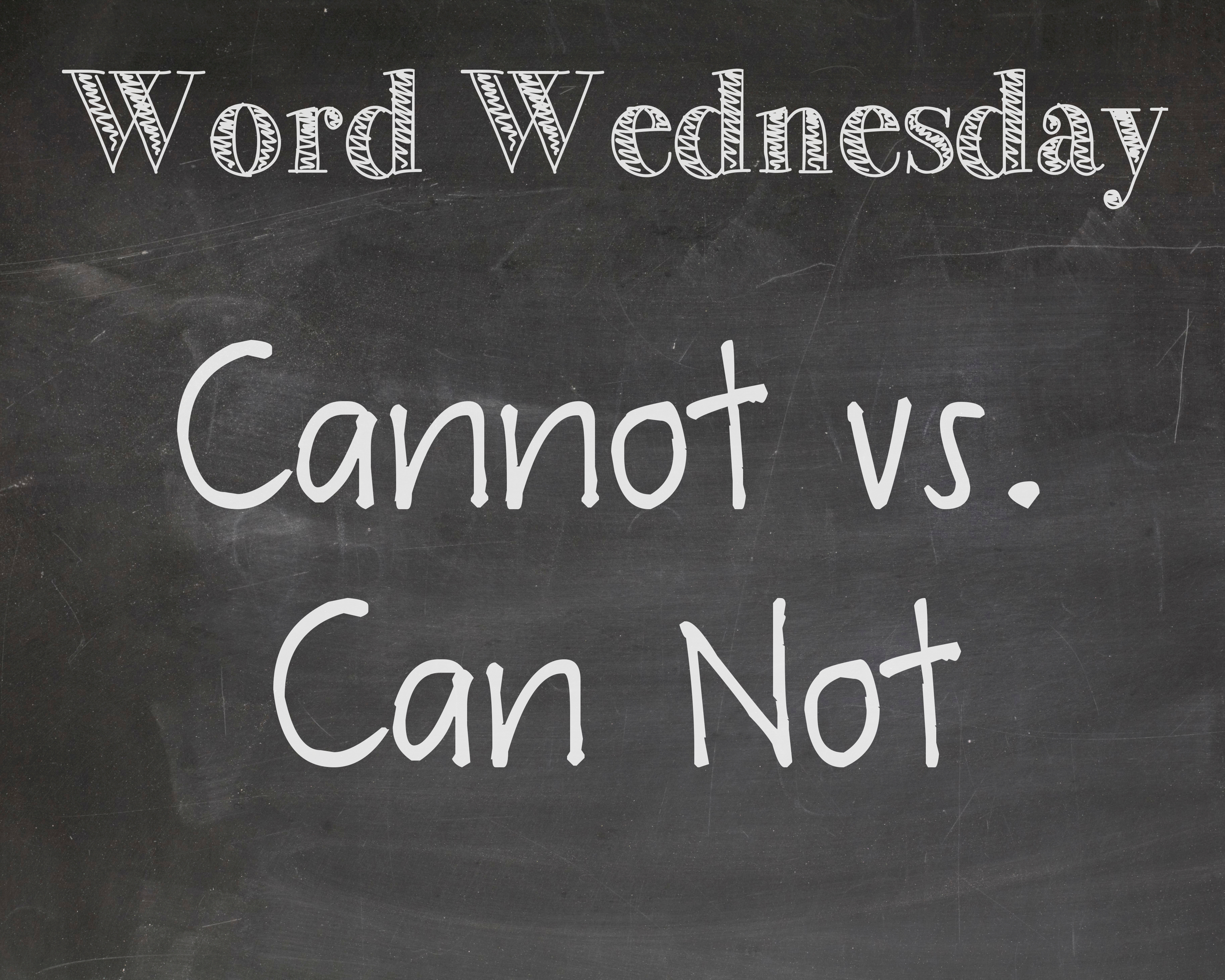Learning new words and being able to find the word that means exactly what the story needs can mean the difference between a mediocre story and a brilliant one.
While many sources discuss the difference between “cannot” and “can not,” some go so far as to suggest they are simply always interchangeable. Certainly my word processor falls into this category, since every occurrence of “can not” in this post has fuzzy blue underlining.
Other (slightly more believable) sources document the difference like so:
“Cannot” refers to something being impossible, while “can not” means that a choice exists.
For example:
I cannot lay eggs.
Explanation: Impossible, because I am human, and humans don’t lay eggs. I have no choice in the matter.
I can not tell you how Book 2 ends.
Explanation: I can tell you, but it would ruin your enjoyment of the story. Here, I am choosing not to do something.
Some people suggest that can not places a slight emphasis on the word “not,” and others provided the mnemonic device that since can not has two words, it implies the choice between two options.
Consider how “I canNOT lay eggs” doesn’t affect the meaning of the sentence—duh, I can’t* lay eggs—but in the second example, “I can NOT tell you how Book 2 ends” suggests that the alternative is that “I can tell you how Book 2 ends.”
I suggest that, if you are debating the appropriate use, substitute the “cannot” or “can not” with “can choose not to” and see if the statement still makes sense.
In the two examples I provided above, the first one still doesn’t make sense: “I can [choose] not [to] lay eggs” is a false statement since I have no choice in the matter.
Alternately, “I can [choose] not [to] tell you how Book 2 ends” is perfectly accurate.
*Apparently everyone seems to agree that “can’t” is a contraction exclusively intended for “cannot” unless you are in the camp that “cannot” and “can not” are always interchangeable.
What examples can you think of (or can not, depending on how you feel about my blog) demonstrating the correct uses of “cannot” and “can not”?
